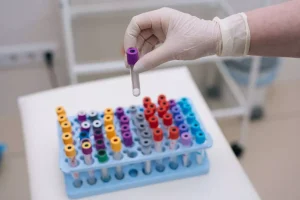
“They’re usually irritable, controlling, compulsive, possibly mean, negative, maybe even nasty,” McFadden told her followers. Moreover, McFadden claimed that after almost a year of abstinence, various dry alcoholic characteristics began to rear their head. Instead of meeting face-to-face with experts and joining tried-and-tested 12-step programmes, many decide to forge ahead on a solo sober odyssey. There are different treatment options available depending on your situation. More severe symptoms, such as hallucinations and seizures, may appear. But if you do it to hide your drinking or drink excessively while alone, you may have a problem.
- Over time, alcohol is no longer enough to support their stress levels, either.
- The face of the alcoholic needs to be changed and the walls of denial must be broken down in order that alcoholics everywhere can receive proper diagnosis and treatment.
- Loved ones or coworkers may have raised their eyebrows at your drinking habits enough that you begin to hide how much you’re drinking.
- If you are concerned about your loved one’s drinking, it can be helpful to join a support group such as Al-Anon.
- It used to just take a few drinks to get that buzz you’re looking for, but now you need four or five drinks to get the desired effect.
- While they may seem OK to the outside world, it’s likely that warning signs and symptoms are appearing elsewhere.
Does Tolerance Contribute to Alcoholism?

Although they may appear to be healthy and functional, without treatment, their condition could get worse. A test recommended by the National Institute for Health and Care Excellence (NICE) is the alcohol use disorders identification test (AUDIT). Sometimes, only the people close to them will notice their problematic drinking patterns. While some struggle with their addiction, others can live successful lives. If you or a loved one is struggling with addiction, our expert team is here to guide you every step of the way.
Erik Menendez is living out his life in prison, yet has still managed to find love
- Alcoholics Anonymous (AA) is an effective worldwide organization of peer-facilitated support groups that helps people recover from alcoholism.
- A high-functioning alcoholic’s addiction is just as dangerous as someone with repeat DUIs or who gets into fights with loved ones because of their drinking.
Treatment options for substance abuse include therapy, alcohol rehab and detox programs, support groups, and medication. Cognitive-behavioral therapy (CBT) can help address underlying issues, while rehab programs offer structured support. Support groups like Alcoholics Anonymous provide community and accountability. Medications can also assist in managing cravings and withdrawal symptoms. The picture of someone struggling with alcohol abuse disorder is often one where people struggle to live life normally as they battle a dependency on alcohol.
Seeking Support From Others
The NIAAA offers a range of assessment tools and strategies to help people understand their drinking patterns, reduce their drinking, or quit completely. By Buddy TBuddy T is a writer and founding member of the Online Al-Anon Outreach Committee with decades of experience writing about alcoholism. Because he is a member of a support group that stresses the importance of anonymity at the public level, he does not use his photograph or his real name on this website.
- In contrast, non-high-functioning alcoholics exhibit more noticeable signs of their addiction.
- You may believe you’re not doing anything wrong and are in control of your life.
- However, just because you don’t fit the mold of what you consider a typical alcoholic doesn’t mean you don’t have a serious problem that can be dangerous and even deadly.
- If you meet at least 2 of the above criteria within a 12-month period, you may want to consider undergoing a more formal assessment to see if AUD could be an issue.
- When confronted about their drinking issues, some alcoholics are capable of providing seemingly reasonable and rational explanations for why they drink so much or so often.
- Your insurance plan may cover some or all of the cost of treatment for drug or alcohol addiction.
What Are the Signs?

An alcoholic in denial may become extremely manipulative, tearful, angry or hostile when faced with the need for alcohol treatment. An experienced intervention specialist can help the participants prepare for these reactions so they can respond effectively. The participants in an intervention could include the alcoholic’s spouse or partner, children, parents, friends, coworkers, employer, friends and other individuals who have been affected.

This is due to the potentially stigmatizing language around the word “alcoholic”, which may also prevent someone from seeking help and support. These people have jobs, active social lives, or happy families at home. At some point, a high-functioning alcoholic has tried to quit drinking but failed in their attempt. This pattern is often repeated, functional alcoholic husband and you may notice that they go through periods where they drink heavily and then make an attempt to quit. Even though they continuously go through this cycle, they still refuse to seek treatment. This is part of their personality where they feel like they can handle their drinking on their own without getting help from others.
Functional Tolerance
My brand of introversion embraces teaching and speaking, but then it demands some hardcore decompression period afterwards, something I was very unaware of when I was drinking. McFadden – who is now sober – claims that the 11 months she was a dry alcoholic was a totally ‘dark’ period in her life. Recovering alcoholics who have sought help through programmes such as AA would also use the expression ‘dry drunk syndrome’ to categorise these people, writes Web MD. Taking to TikTok, McFadden kicked off her video by explaining ‘not everyone’ she comes across believes in the term ‘dry alcoholics’.


Alcohol abuse can sometimes be confusing and difficult to spot, especially if a person appears to be capable of doing everything they need to maintain core aspects of their lives. They may perform well at work, have a pristine appearance and enjoy an active social life. While they may seem OK to the outside world, it’s likely that warning signs and symptoms are appearing elsewhere. Unfortunately, being able to drink and still maintain their responsibilities doesn’t mean a person is free of alcoholism. Alcohol addiction is a chronic disease, and it causes a person to drink no matter what compulsively. A high-functioning alcoholic’s addiction is just as dangerous as someone with repeat DUIs or who gets into fights with loved ones because of their drinking.
However, some people may use the phrase to refer to individuals who are experiencing an AUD but are still able to successfully function in their work and personal lives. Because they keep drinking, they don’t feel any withdrawal symptoms. High-functioning alcoholics typically joke about their drinking habits.
Trust issues, emotional distance, and frequent conflicts can arise. Addressing these issues early is crucial for maintaining healthy and supportive relationships. Identifying a high-functioning alcoholic can be challenging since they often appear to maintain their daily responsibilities. However, certain behaviors and patterns can indicate a deeper issue. The symptoms and risk factors above should help give you an idea of whether you, or someone you know, may be a functioning alcoholic.
